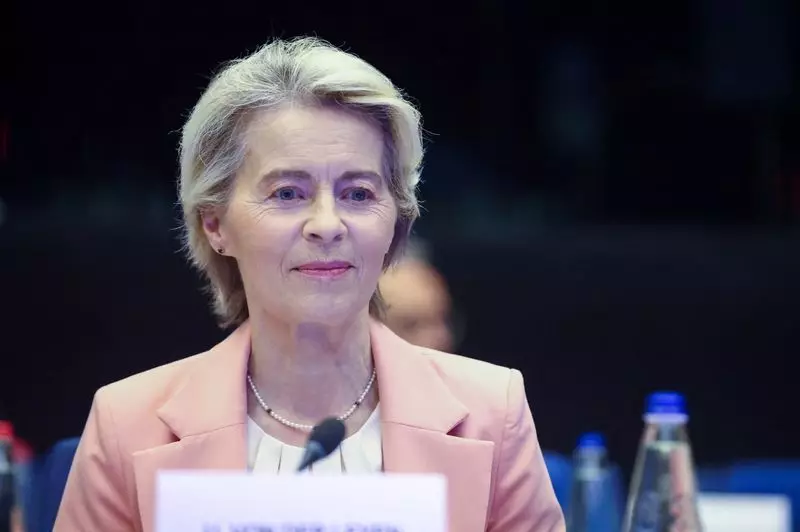In a pivotal moment for the European Union (EU), President Ursula von der Leyen has unveiled the new lineup for the EU Commission, bringing fresh faces and a strategic direction designed to address contemporary global challenges. With the appointment of key figures like Teresa Ribera from Spain as the new antitrust commissioner and Kaja Kallas from Estonia overseeing foreign policy, von der Leyen’s team reflects a commitment to enhancing the EU’s operational capabilities in a rapidly changing geopolitical landscape.
The appointment of Andrius Kubilius from Lithuania as the EU’s first defence commissioner marks a historic step towards bolstering European military manufacturing. This initiative is particularly pressing given ongoing tensions and the aggression posed by Russia in Eastern Europe. Such a role signals to member states and global partners that the EU is serious about enhancing its defence readiness and autonomy in the face of external threats.
The newly appointed Commission will take on significant responsibilities, particularly in ensuring competitiveness amidst challenges posed by technological advances and climate change. Von der Leyen has emphasized that the Commission’s priorities will include prosperity, security, and a green transition—all of which are vital as Europe continues to navigate the complexities of a post-pandemic world. The urgent need to focus on a decarbonised and circular economy is at the forefront of the Commission’s agenda, as climate change looms over all decision-making processes.
While the prior Commission tenure was marked by strong commitments to environmental sustainability, the current landscape has necessitated an amplified focus on security and strategic competitiveness. Von der Leyen described this transformation as a direct response to the geopolitical shifts instigated by the Russian invasion of Ukraine, which has underscored the importance of supporting democratic values across the continent.
A critical area of focus for Ribera will be overseeing European antitrust laws, a portfolio that demands delicate navigation as pressures from major technology firms grow. Following the exemplary leadership of Margrethe Vestager, who became known for her aggressive stance against anticompetitive behaviors within the tech sector, Ribera will need to continue this legacy. Moreover, her oversight of EU policies regarding foreign subsidies is intended to protect European businesses from the influx of cheaper imports, particularly amidst challenges presented by competitors from China.
With the EU’s commitment to achieving digital and ecological transformations, understanding the competitive landscape in which European industries operate will be paramount. The Commission’s strategic focus will not only seek to bolster domestic industries but also to facilitate fair trading conditions across a global marketplace confronted with constant evolution.
An intricate layer to the upcoming Commission’s challenges will emerge with the results of the upcoming U.S. presidential election. A potential return of Donald Trump could not only disrupt Western unity regarding support for Ukraine but may also jeopardize EU-American trade relations. The strategic decisions by the Commission will need to account for shifting relations with the U.S. while maintaining a steadfast commitment to EU interests.
Von der Leyen’s leadership will require deft management of these dynamics as the new commissioners prepare to embark on their roles. Their ability to work cohesively on addressing pressing issues—such as security, competitive technology markets, and a commitment to sustainability—will set the tone for the future trajectory of the EU in the global arena.
As the new EU Commission gears up to take office by the end of the year, they stand at the frontline of navigating a delicate balance between domestic priorities and international challenges. This decisive moment will showcase the readiness of European leadership to tackle the pressing issues of our time with both innovation and determination.

